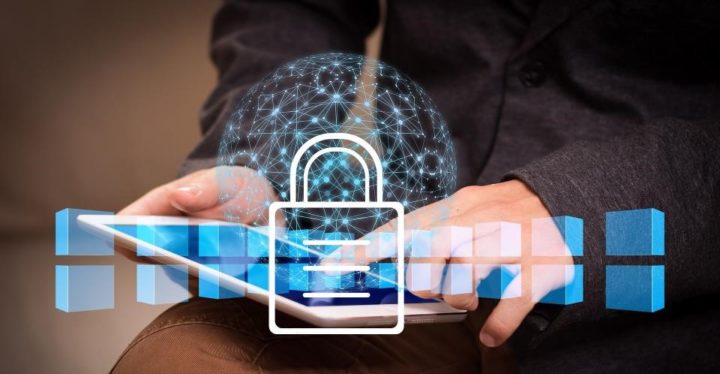When was the last time you conducted a thorough cybersecuirty risk assessment for your company? If your answer is anything beyond the last few months you may need to get started sooner than later.
With the current pandemic and the corporate world switching to the new normal of digitalization and work from home options. Cybersecurity becomes a critical factor to ensure the safety of your data and your clients’ sensitive information. Ignoring it can lead to your business exposing itself to vulnerability and exploitation. Risk assessment is critical in general but it is more important that ever given the heavy reliance of online means whether it is storing your data on cloud, online meetings, or virtual private network. Ask yourself a simple question, can you afford a downtime now due to a cyber threat. Sensitive information is being constantly shared and your clients are trusting you with it. Diagnosing a cyber-attack and getting the system back up is a monumental task in general and with the current logistical challenges in front of us, it could be a bigger test to overcome. Being proactive with your security measures and ensuring your clients’ trust is intact should be a top priority. Risk assessment could certainly help with this priority.In this article, we discuss why you need a risk assessment and how to go about it.
With government authorities pressing on the severity of cyberattacks, cybercrimes and related compliance regulations, a well-done risk assessment helps avoid unnecessary downtime and threats.
The NY Department of Financial Services (NYDFS) Cybersecurity Regulation (23 NYCRR 500) makes it mandatory for financial institutions governed by the NYDFS to take specified steps towards strengthening cybersecurity policies. Regulations such as SHIELD Act also tightens enforcement of data privacy and consumer protection.
Why do you need Risk Assessment?
Let’s start with what has caused the immediate requirement for an IT risk assessment before we move on to how you should conduct it for your business.
- WFH challenges
With most companies operating remotely to implement social distancing and abide by the lockdown rules. More employees are logging into company accounts through either compromised networks or personal networks. Making it critical for the business to protect its data and servers. Ensuring encryption and VPN server checks allows any known and unknown threats to be minimized. With large traffic being directed online, IT teams need to ensure safe network and multi-level authentication which provide the needed protection and safety required to limit the risk of a data breach.
- Increase in cyber attacks
Cybersecurity threat is constantly lurking around and with the pandemic, businesses are being targeted with new techniques. Cyberattackers are masking as known entities in order to gain access to confidential data and breaches by targeting vulnerable employees and networks. The Government departments have also issued a series of alerts and notifications for businesses to secure their networks and assess their vulnerabilities in order to handle and minimize risks.
- Reputation
Irrespective of the current ongoing challenges a business may face, its reputation depends heavily on how it manages risk and ensures the safety of the customer data they store. This not only causes financial losses but also damages the reputation of the business on both the short- and long-term basis.
Even though the Equifax breach was in 2017, the company is still paying off the $4 billion in total.
- Cost and budget
Handling a risk when it’s a threat is much easier than dealing with penalties and lawsuits that come due to breaches. Risk assessment allows a business to stay in its required budget without having to spend on resources or other factors that may arise due to a breach.
Worldwide spending on cybersecurity is going to reach $133.7 billion in 2022.
- Compliance
As mentioned above, Entities such as CISA, Homeland security and the NYDFS have all mentioned the need for companies to abide by the compliance laws in place. Although the compliance may differ based on the industry the goal remains the same, to assess, identify and minimize risk.
The average time to identify a breach in 2019 was 7 months.
How to assess and implement Risk Assessment for your business
Now that you are aware of why you need a Risk Assessment let’s move on to how your IT service provider or your IT team should start assessing.
Categorize
Categorize the assessment based on process, function and application. Below are some of the basic details based on which you can do this:
- What is the data type?
- Who’s the vendor/vendor type?
- What is the data flow?
- Access the data
- What is the endpoint for the information?
Identify threats
Once you have categorized the data and information along with the vendor and source. You can move on to identifying threats based on each category. Look for the below-mentioned points while identifying them:
- Are there any unauthorized accesses?
- Is there any chance of misuse of access provided?
- What are the chances of gaps in the network leading to data leaks?
- Is there a threat to the loss of data?
- Will this cause disruption of service or productivity?
Determine Risk Impact
What impact does the risk pose? Categorize the identified threats based on a scale of High, Medium and Low-Risk impact and secure those that are under high and medium risk impact on a priority basis compared to the low ones.
Create a Likelihood Rating
Create a rating based on resources and networks more likely to be breached. In terms of the current situation given the work from the home model, the likelihood that networks are breached through Phishing and malicious software has significantly increased. Educate your employees while simultaneously implementing multi-factor authentication, limited access to networks and separating networks to reduce the risk impact.
Risk assessment is a broader topic and this article just highlights a brief overview on the importance of risk assessment and outlines some best practices. For more information or to conduct a risk assessment, consults experts at CompCiti Business Solutions, Inc.
CompCiti’s expertise in IT, Cybersecurity and IT management services aim at providing its clients with services such as risk assessment, data protection, compliance regulation and related IT systems to protect against all sorts of cybercriminal activities and threats including Malware and Ransomware.

